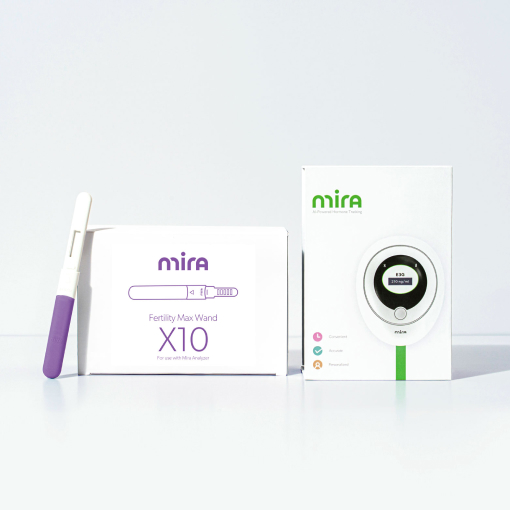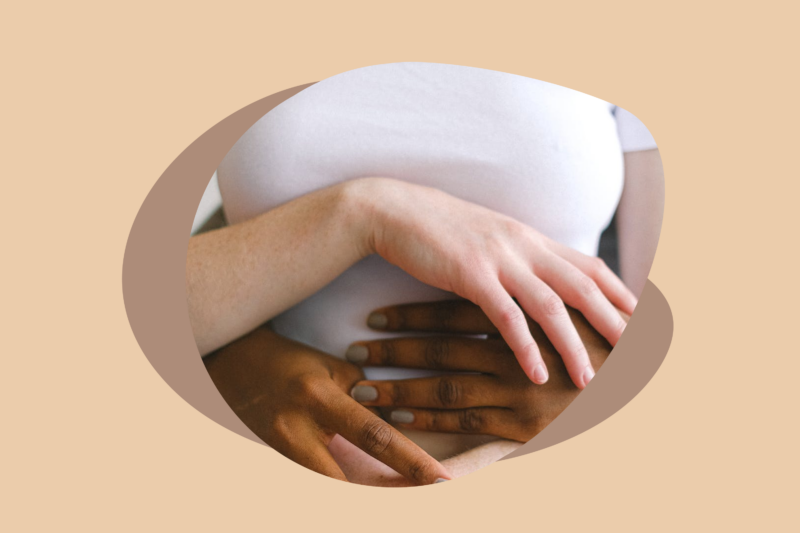How Drinking While TTC Affects Your Fertility & Pregnancy

Much of the conversation with alcohol revolves around whether you can drink while you are pregnant, but what about alcohol consumption when you’re trying to conceive? You’re likely already familiar with many of the other lifestyle changes you can make to help you get pregnant, but changing your drinking habits can be a tough pill to swallow. You know you have to stop once you are pregnant, but many want to know if they can drink while trying to get pregnant and whether alcohol can stop you from getting pregnant. There are a lot of factors that contribute to fertility and managing them all can be quite stressful. Alcohol is only one factor, but in this post we’ll discuss how drinking while trying to conceive can impact your fertility and pregnancy.

Can you drink while trying to get pregnant?
When you’re trying to conceive you want to be as healthy as possible and create the optimum conditions for conception and pregnancy. Any amount of alcohol can lead to health consequences and the risks of drinking during pregnancy are well documented. The truth is, it is unclear how alcohol affects fertility exactly so the impact of this factor isn’t as clear cut. Research on the area is mixed but health organizations recommend avoiding all alcohol even when TTC. The fact of the matter is that no ‘safe dose’ of alcohol has been identified and the effects to any potential fetus may begin immediately. For that reason, women are advised to avoid alcohol altogether while trying to conceive.
How alcohol affects fertility?
The dangers of certain lifestyle choices, like smoking, are well known and their effects on fertility well documented. Alcohol’s effects on fertility and trying to conceive are less well known though and leave many women questioning whether they can drink while trying to get pregnant.
The guidelines and research as well as the risks associated with drinking are very clear – if you are trying to get pregnant you should not drink alcohol. No amount of alcohol is safe in pregnancy and you risk serious harm to a fetus if you continue drinking or drink when you didn’t know you were pregnant. For unintended or unrecognized pregnancies, this can pose a serious risk and unintentionally expose a developing pregnancy to the adverse effects of alcohol. And since alcohol-related birth defects are completely preventable, the American College of Obstetricians and Gynecologists cautions that any amount is risky for women who are trying to become pregnant.
Although there may be some social or health benefits related to moderate drinking, when TTC the cons outweigh the pros. Aside from the clear risk of fetal harm from drinking during an early pregnancy, there is evidence that moderate drinking may affect fertility as well. In women, studies have found that long term moderate drinking may negatively impact ovarian reserve, or the number and quality of your eggs. In other words, even moderate drinking can have an effect on a woman’s reproductive potential.
You may also be wondering whether a man can drink alcohol when trying to conceive or whether alcohol affects sperm quality. For men, alcohol affects fertility by interfering with the reproductive system, and more specifically testosterone production. Not to mention that drinking may cause other knock on effects in men like erectile dysfunction or premature ejaculation that can negatively impact fertility or your chances of conception. For those seeking fertility treatments, the outcomes are even worse and drinking can seriously affect the success of those treatments.
We still have a lot to learn about how alcohol affects our reproductive systems, and the effects on our fertility. There is no shortage of opinions on continuing to drink while pregnant but even small amounts of alcohol can harm fetal development, resulting in lifelong impacts. Alcohol can cause harm at any time during a pregnancy and even a few sips will pass straight through the placenta to your developing baby. Since the risk to any potential pregnancy is so great, both the Centers for Disease Control and Prevention (CDC) and the American College of Obstetrics and Gynecologists (ACOG) caution against alcohol consumption when you are trying to get pregnant or continuing alcohol consumption while pregnant. .
Recommended for you
Navigate your fertility with peace of mind
Possible risks
The list of possible health risks to a developing baby include congenital abnormalities, developmental delays, cognitive disabilities, low birth weight, preterm delivery, and stillbirth. Research has shown even minimal exposure to alcohol during pregnancy can have significant and lifelong health effects.
If you are actively trying to get pregnant, you should stop drinking while trying to conceive so there is no chance a potential pregnancy could be negatively affected. Once you are pregnant, all alcohol consumption should stop immediately. There is no amount of alcohol use that is safe during pregnancy. Alcohol related birth defects are completely preventable and if you are pregnant you should not drink alcohol.
Although your body may still be able to process any alcohol consumed while you are pregnant, the alcohol in your bloodstream will pass directly to the fetus via the placenta. The still developing fetus lacks the ability to process alcohol and may suffer due to the exposure. Fetal Alcohol Spectrum Disorders are caused by exposure to alcohol in the womb and the problems associated with them can be lifelong and devastating. Not to mention the myriad of health problems that can be caused by drinking during pregnancy.
Occasional drinking – is it safe?
The reality is that the research is mixed when it comes to the effects of an occasional drink on both fertility and pregnancy and the advice you get from all popular sources can be confusing. Even though almost all organizations recommend abstaining from alcohol while TTC for the greatest chance of success, many healthcare providers say the occasional drink is ok.
The research on binge drinking and excessive consumption is clear, as is the message to pregnant women, but the effects of an occasional drink are less understood. How much you drink and what you drink can be as important as how often you drink. Some providers may recommend the occasional glass of wine as being harmless, but the truth is we don’t know what a harmless amount is and it can vary from woman to woman and fetus to fetus. Whether that amount is a glass of red wine, a vodka soda, or the occasional pint, what we do know is that alcohol is a teratogen (can cause birth defects). Even though a small amount may be safe, it’s best not to risk the lifelong consequences it can cause.
More research on safe levels of drinking for pregnant women is definitely needed, but the ethics of conducting such a study make it highly unlikely. Since the full effects of low consumption during pregnancy are unknown, organizations advise against consuming any alcohol during pregnancy. Don’t let that stop your fun though, you can still enjoy festive drinks and alternatives like mocktails to help you steer clear of alcohol.
Male drinking and possible effects/risks
Even moderate alcohol consumption can have impacts on male fertility. Beyond its negative impact on sperm quality, alcohol can lead to other negative consequences in sexual function – like limiting your ability to orgasm or impeding libido.
Due to the numerous studies on alcohol abuse in men, we know that alcohol can impact the reproductive system and cause impaired testosterone production (among other things) that can lead to infertility. There is even a growing pile of evidence that male drinking may negatively impact the health of the baby.
In men, drinking lowers certain hormone levels and raises others, resulting in reduced sperm production; not to mention changes in the shape, size and movement of healthy sperm. Overall, the effects of alcohol on the count, size, shape, and motility of sperm can have serious impacts when trying to get pregnant. If you are trying to conceive, it is generally recommended for men to stop drinking as well.
Alcohol and miscarriage
There is no safe amount of alcohol that can be used during pregnancy and the harmful effects can begin immediately. Drinking even moderate amounts may lead to miscarriage and you should not drink if you know you are pregnant or trying to get pregnant. In fact, the chance of miscarriage increases significantly each week alcohol is consumed, which is why women are advised to avoid alcohol when TTC since they may be pregnant and not even know it.
The fact of the matter is, drinking alcohol is associated with multiple health risks, including fertility and reproduction. Several studies have found an increased risk of miscarriage with alcohol consumption but not all evidence is as conclusive. There are obvious inherent difficulties to this type of research but the general scientific consensus is that the risk of miscarriage increases with the amount of alcohol consumed.
Alcohol and IVF
In-vitro fertilization, or IVF, is an assisted reproductive technology used to improve the chance of conception. It can depend on a lot of factors, including your age and specific fertility issues and success isn’t guaranteed.
Evidence suggests a relationship between consuming alcohol and the chance of IVF success. Women who drink while going through treatment were found to have a higher risk of miscarriage. Even men who consume alcohol while participating in IVF saw an increased risk of miscarriage. Given the commitment and toll IVF treatment can take, it’s especially crucial to prepare for pregnancy by living a healthy lifestyle and avoiding alcohol.
FAQs about drinking while TTC
Still have questions about drinking while TTC and how it can affect you? We have answers to some of the most pressing questions about fertility and drinking while TTC.
Does alcohol affect egg quality?
Given that drinking is associated with an increased risk of issues with ovulation or cycle regulation, it makes sense that you may be wondering how alcohol affects egg quality.
Research has been conflicting on the specific effects on egg quality, but given the other effects of alcohol on your body, like an increase in blood pressure or memory problems, it may still be harmful to your fertility and should be limited or stopped altogether when trying to conceive.
Can alcohol affect implantation?
Alcohol can have negative effects on your fertility before you are even pregnant. Aside from the issues drinking can cause for women with ovulation and cycle regulation, it can also prevent proper implantation in the uterus. One study even suggests that women should avoid consuming alcohol in the second half of their menstrual cycle when trying to get pregnant because of the association.
Any other important info
The short and long-term effects of alcohol on the body are well documented (pregnant or not). Drinking while trying to conceive can not only harm you but your unborn child as well. Since we don’t know what a safe amount for consumption is during this time, the risks are simply too great. With that in mind, health organizations recommend total abstinence while trying to conceive and during pregnancy. Cutting alcohol is just one step you can take to lead a healthy lifestyle and promote your fertility. Given the stigma around any alcohol consumption in pregnancy, don’t be afraid to talk to your doctor to get help or more information so you can have the healthiest pregnancy possible.
Take the Quiz!
Tell us your fertility goal and we'll give you a perfect product match
Mira’s Editorial Process
All content produced by Mira meets stringent editorial standards, ensuring excellence and accuracy in language and medical precision. Every piece undergoes thorough fact-checking and review by qualified professionals. Check out our full editorial process to learn more.

















